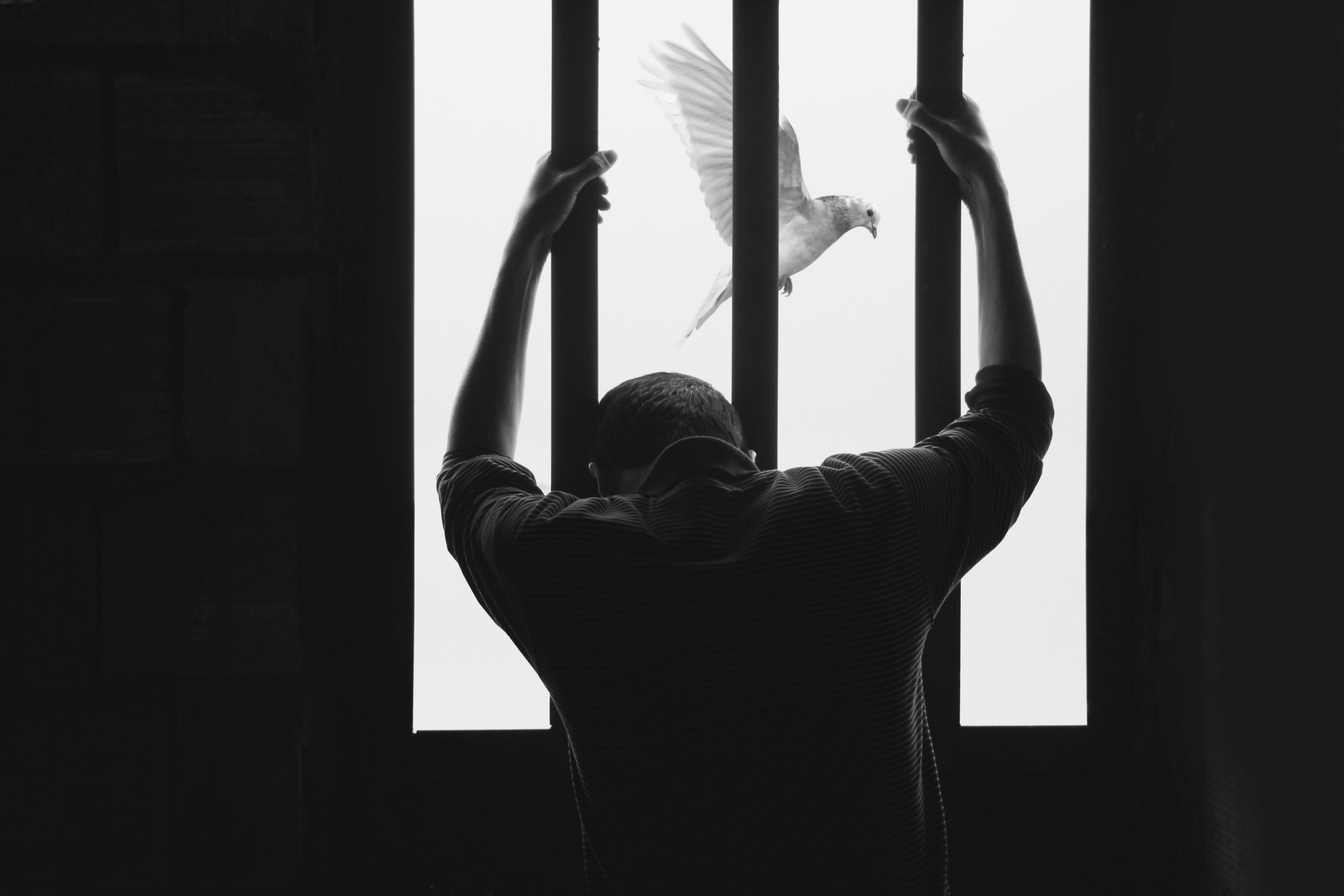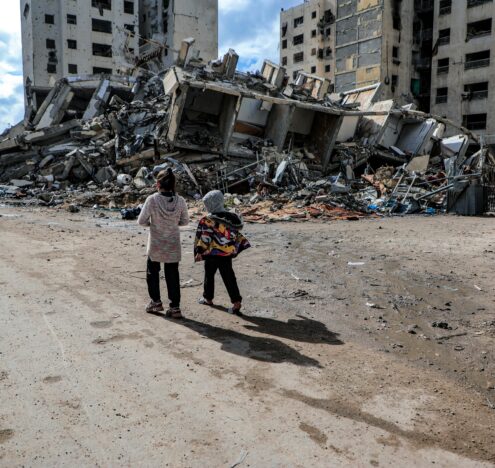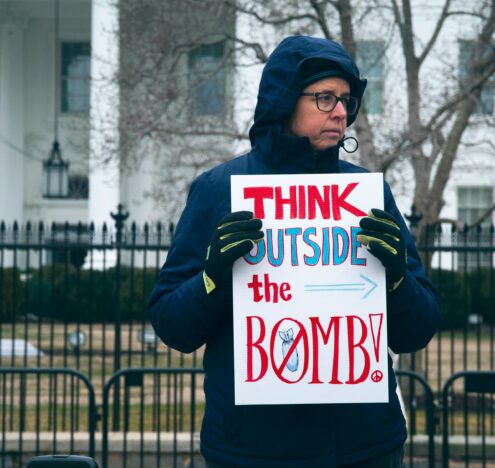Violent repercussions stemming from blasphemy allegations frequently hit the headlines because they lie at the heart of modern identity politics. Blasphemy laws call to criminalize any expression that is considered ”offensive” to God or the sacred. They can lead to state surveillance, police investigations, arrests, arbitrary detentions, trials, convictions, mistreatment in prisons, assaults, mob attacks, and murders.
When it comes to mob violence, in a very ironic twist, those who feel “offended” seek justice though brutality. The ones who claim to fight for “morality” against “radical blasphemers” are the fundamentalist rioters themselves. Crowds have descended on towns, attacked minorities, and burned places of worship. Targeted assassinations have also led to a string of killings.
Even states that do not have blasphemy laws can get caught up in the whirlwind of bloodshed. For example, in 2015, twelve people were killed in the attack against the satirical paper Charlie Hebdo. Five years later, in 2020, French schoolteacher Samuel Paty was beheaded (by Abdoullakh Anzorov) after showing cartoons of the Prophet Muhammad during a class on free speech. And France doesn’t even have an anti-blasphemy law.
So, what happens around the world when states do have such laws? How do state agents enforce the laws and where does that happen? Who is accused of offending the sacred? These are exactly the questions that were studied in a new report published by the US Commission on International Religious Freedom (USCIRF). USCIRF is an independent, bipartisan US federal government commission created by the 1998 International Religious Freedom Act (IRFA) that monitors the universal right to freedom of religion or belief abroad. USCIRF uses international standards to monitor religious freedom violations globally that are based on core human rights instruments, such as the Universal Declaration of Human Rights and the International Covenant on Civil and Political Rights (ICCPR) as well as the legal literature of experts around freedom of religion or belief (Article 18 of the ICCPR) and freedom of opinion and expression (Article 19 of the ICCPR). Finally, USCIRF makes policy recommendations to the President, the Secretary of State, and Congress on how the United States can uphold the freedom of religion domestically and internationally. USCIRF Commissioners are appointed by the President and Congressional leaders of both political parties.
USCIRF’s latest report on how states enforce blasphemy laws represents a snapshot in time (2014–2018) to capture and understand national, regional and global trends — and it records cases when blasphemy laws were enforced by government officials.
STATES WHO HAVE BLASPHEMY LAWS
According to USCIRF’s report on blasphemy laws, 84 countries across the globe have criminal blasphemy laws as of 2020. During a 5-year period (specifically between 2014 to 2018), 732 reported blasphemy-related incidents were collected. The highest numbers of cases of state enforcement occurred in Asia-Pacific (49%), the Middle East (35%), Europe (11%), and Africa (5%). Although some laws exist in Latin America and the Caribbean, no cases were found during that time frame. To sum it up differently, together, the Asia-Pacific and Middle East regions accounted for 84% of the world’s enforcement of blasphemy laws. What’s more, over one quarter (27%) of reported cases implicated alleged blasphemous speech posted on social media platforms, which shows how online speech is shaping new realities and can sometimes be part of the problem — not the solution. For example, in Egypt, Kerolos Attalah was convicted for “liking” a group on facebook. Beyond the time frame of this report, the situation is worsening. On January 1, 2021, an Anti-Terrorism Court in Islamabad, Pakistan reportedly sentenced three men to death for “blasphemy” on social media, and condemned a fourth person to 10 years in prison.
USCIRF’s report’s most significant contribution, however, is its provision of important political, cultural, and religious contexts around crimes of blasphemy — and the state agents who enforce punishments.
Some states concentrate the large majority of cases worldwide. In fact, 10 countries account for 81% of all of them. Pakistan leads with the most cases, followed by Iran, Russia, India, Egypt, Indonesia, Yemen, Bangladesh, Saudi Arabia, and Kuwait. When it comes to violence, four countries account for nearly 80% of mob activity and/or threats of violence. Those are Pakistan, Bangladesh, Nigeria, and Egypt.
THE ENFORCERS
Government agents, whether law-enforcement or judicial authorities (i.e., police, security agents, prison officials, prosecutors, judges), proactively enforce laws of the country where penalties can range from fines, imprisonment, correctional of compulsory labor, corporal punishment (i.e., whipping) to the death penalty. There are also cases where state employees retaliated against an individual accused of engaging in blasphemous conduct though perpetrating extrajudicial measures, such as acts of torture, enforced disappearances, or extrajudicial killings.
Researchers noted incidents in which state officials allegedly committed acts of violence, including torture or cruel, inhuman, and degrading treatment or punishment, against accused blasphemers in Pakistan, Iran, Algeria and Egypt.
In addition to torture, state officials reportedly subjected accused individuals to cruel, inhuman, and degrading treatment while in custody in Iran, Kazakhstan, Kuwait, Oman, Pakistan, Russia, Saudi Arabia, and Sri Lanka. Furthermore, researchers found several criminal blasphemy law enforcement cases in which states agents violated due process. At least one due process violation was reported in each of the following countries: Bangladesh, Egypt, India, Iran, Mauritania, Oman, Pakistan, Russia, Saudi Arabia, Spain, Sri Lanka, Sudan, and Yemen.
THE TARGETED VICTIMS OF BLASPHEMY LAWS
Those who find themselves sanctioned are often in minority positions, be they members of religious minorities, political dissidents, bloggers, secularists, intellectuals, minority-thinkers, artists, or satirists. For example, being Christian in Pakistan, Baha’i in Iran, Atheist in Bangladesh, Ahmadi in Indonesia, Copt in Egypt, or Shiite in a Sunni-majority state, means that you have a higher chance of being accused of blasphemy. The professions of victims accused of blasphemy that are the most frequently reported are: lawyers, academics, media professionals, religious figures, artists, political actors (including government officials), human rights activists, and political dissidents, as is depicted by Figure 7 of the report.
At the diplomatic level, some states invoke “Islamic values” to uphold blasphemy laws and inaccurately claim that critiquing religion is a form of incitement to hatred. Western states have been accused of solely focusing on the rights of Christians and of being disrespectful to Islam — or much worse, insensitive towards incitement to hatred against Muslims. Despite these claims, the international human rights system brings a universalist perspective, meaning that its standards apply to all cultures regardless of sex, color, language, culture, religion, or ethnicity.
One core finding of the report is that Muslims in officially Islamic countries very frequently fall victim to the law. It shows that opposing blasphemy law is not anti-Islamic — on the contrary, it’s defending persecuted Muslim individuals. In just over half the cases of state enforcement, the religion or belief of the accused was tracked down. Of those cases, Muslims accounted for more than half (56%) of the persons arrested, prosecuted, and/or punished for alleged blasphemy crimes. Other groups frequently targeted for criminal blasphemy law enforcement, where identified, included: Christians (25%), Atheists (7%), Baha’is (7%), and Hindus (3%).
WHY BLASPHEMY IS RELEVANT
Measuring how states enforce blasphemy laws is important for (at least) three reasons. First, blasphemy laws and their implementation is a good indicator for assessing the level of freedom of religion or belief in a given country, as well as how international standards on free speech, free assembly, and minority rights are respected. Second, focusing on blasphemy laws highlights elements around the rule of law, such as how law enforcement officials and judicial authorities operate when under the pressure of blasphemy allegations. And third, analyzing how states implement blasphemy laws shed much light on the states’ general relationship to religion and how adamant it is (or not) to apply such laws.
The findings of this report are essential when studying this question, despite some limitations when conducting research. For example, primary source data was scarce and the USCIRF research team mostly had to rely on secondary sources. Also, some accused faith groups can be underrepresented in the media, so the number of reported cases is a conservative estimate. Nonetheless, states with blasphemy laws routinely mete out harsh punishments, such as life imprisonment and even death, for crimes associated with blasphemy. Oftentimes, these states subject alleged blasphemers to human rights abuses, adding more injustice in unjust criminal justice systems.
USCIRF’s report’s most significant contribution, however, is its provision of important political, cultural, and religious contexts around crimes of blasphemy — and the state agents who enforce punishments. As the report concludes:
“It is time for states to protect fundamental human rights and prevent future harm against individuals, rather than protecting religious ideas at the expense of individual rights.”
The time is now.
Joelle Fiss is a human rights consultant based in Geneva, Switzerland. She is co-author, together with Jocelyn Getgen Kestenbaum, of two key reports published by the US Commission on International Religious Freedom (USCIRF): “Violating Rights: Enforcing the World’s Blasphemy Laws” and “Respecting Rights? Measuring the World’s Blasphemy Laws.” Her work can be found at www.joellefiss.com and she can be contacted at fissjoelle@gmail.com.




















